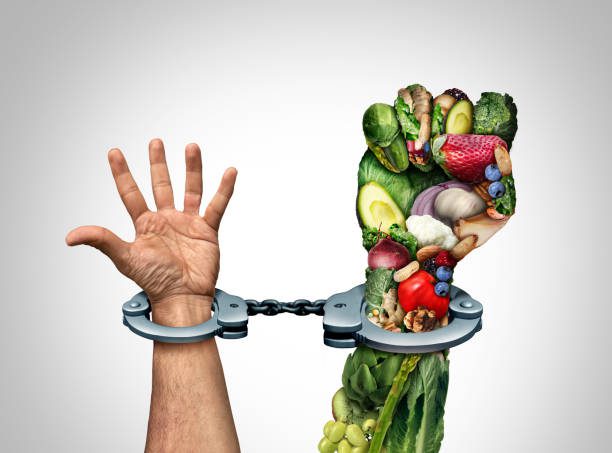This content is for informational and educational purposes only. Always consult a qualified healthcare provider.
Eating healthy sounds like the best thing you can do for your body. More fruits, more vegetables, less junk food, it feels like the right path. In fact, it is the right path. You follow the rules, avoid “bad” foods, and eat only what’s “clean.” At first, you feel good. Maybe you lose weight, have more energy, or get compliments on your discipline.
But what if, one day, this “healthy eating” starts making you sick? What if it takes over your mind, makes you anxious, or even damages your body?
This actually happens more often than we think. It starts with good intentions but slowly turns into something harmful. The problem is not eating healthy itself, it’s obsessing over it, fearing food, and losing balance.
If you’re someone who wants to be healthy, you need to know when your eating habits stop helping and start hurting you.
📋 Table of Contents
The Key Takeaway.
Healthy eating becomes dangerous when it moves from being a choice to being an obsession. If your diet makes you anxious, exhausted, socially isolated, or physically weak, it’s no longer healthy. Good health is not about strict rules, it’s about balance, variety, and a positive relationship with your food.
The Problem Is That People Think They’re Doing the Right Thing.
Most people who have harmful eating habits don’t realize it. They think they’re just being disciplined and making smart choices.
It Usually Starts Like This:
- You want to lose weight, gain muscle, or prevent disease.
- You research healthy eating and follow diets you believe are backed by science.
- You stop processed foods, sugars, or carbs because they are “bad.”
- You feel great at first, your body changes, people notice, and you feel in control.
But over time, things start to shift.
How Healthy Eating Becomes Dangerous.
- You start feeling guilty about food – Eating something “unhealthy” makes you feel like you failed.
- Your food list gets smaller – You cut out sugar, then dairy, then grains, then oils… until there’s barely anything left.
- You stress over every ingredient – You read labels for hours, avoid restaurants, and fear eating at social events.
- You stop enjoying food – Meals become calculations, not moments of pleasure.
- Your body suffers – You feel weak, tired, or develop health issues like hair loss or missing periods.
- Your life revolves around food rules – You plan everything around what you can and cannot eat.
What started as a way to be healthy has now taken over your life.
The Hidden Eating Disorder: Orthorexia.


Many people have heard of anorexia and bulimia, but orthorexia is an eating disorder that’s often ignored. It’s the obsession with eating only “pure” and “clean” foods.
The term was first used by Dr. Steven Bratman in 1997. He was once obsessed with eating healthy but realized his strict diet was making his life miserable. Instead of feeling better, he was constantly stressed about food.
Orthorexia isn’t about losing weight, it’s about control. People with orthorexia believe they’re protecting their health, but in reality, they’re harming it.
This disorder is dangerous because it hides under wellness. A person with orthorexia might think they’re just “eating clean” or “avoiding toxins,” but in reality, they’re malnourished, anxious, and socially isolated.
What Are The Hidden Dangers We Don’t Talk About?
Your Body Needs Balance, Not Extremes.
Extreme diets, the ones where they cut out carbs, fats, or entire food groups, can cause serious health problems.
- Cutting out too many foods can lead to low iron, calcium, B12, or other vital nutrients.
- Without enough nutrients, your body can’t fight infections properly.
- Low-fat diets can mess with hormones, leading to issues like infertility, mood swings, and energy crashes.
- Not eating enough can cause weakness, brain fog, and chronic exhaustion.
Your body thrives on variety. The more extreme your diet, the higher you’re at risk of health problems.
Fear-Based Eating is Not Healthy.
If you avoid foods because you’re scared of them, and not for real health reasons, that’s a problem. Food should nourish you, not scare you.
- Constant stress over food increases cortisol (stress hormone), which harms your body.
- You stop eating with friends and family because their food isn’t “clean” enough.
- Strict diets can backfire by causing binge eating or uncontrollable cravings.
The “Clean Eating” Industry is Lying to You.
Many “health” rules we follow today are created by marketing, not science.
- Superfoods are overhyped. No single food can “cure” or “detox” your body.
- Fear of sugar, gluten, or dairy is often exaggerated. Unless you have a medical condition, these foods in moderation are not harmful.
- Expensive “health foods” are no better than regular food. A $10 organic smoothie isn’t magically healthier than a homemade banana shake.
How Can YOU Eat Healthy Without Hurting Yourself?
Pick Balance Over Perfection.
Instead of strict food rules, focus on:
- Eating a variety of foods, not just “clean” foods.
- Adding all nutrients like carbs, proteins, fats, and fiber.
- Allowing occasional treats without guilt.
Listen to Your Body.
Your body knows what it needs.
- Eat when you’re hungry, stop when you’re full.
- If your diet makes you tired, weak, or anxious, it’s not good for you.
- If you’re missing periods, losing hair, or constantly sick, your diet needs to change.
Stop Seeing Food as “Good” or “Bad.”
- No food will ruin your health in one bite.
- Food is fuel, not morality.
- Guilt should not be part of eating.
Let Yourself Enjoy Food Again.
- Share meals with your family and friends.
- Try different foods without fear.
- Forget perfection. Health is about the long term, not just today.
Good health is about a good relationship with food and life.

